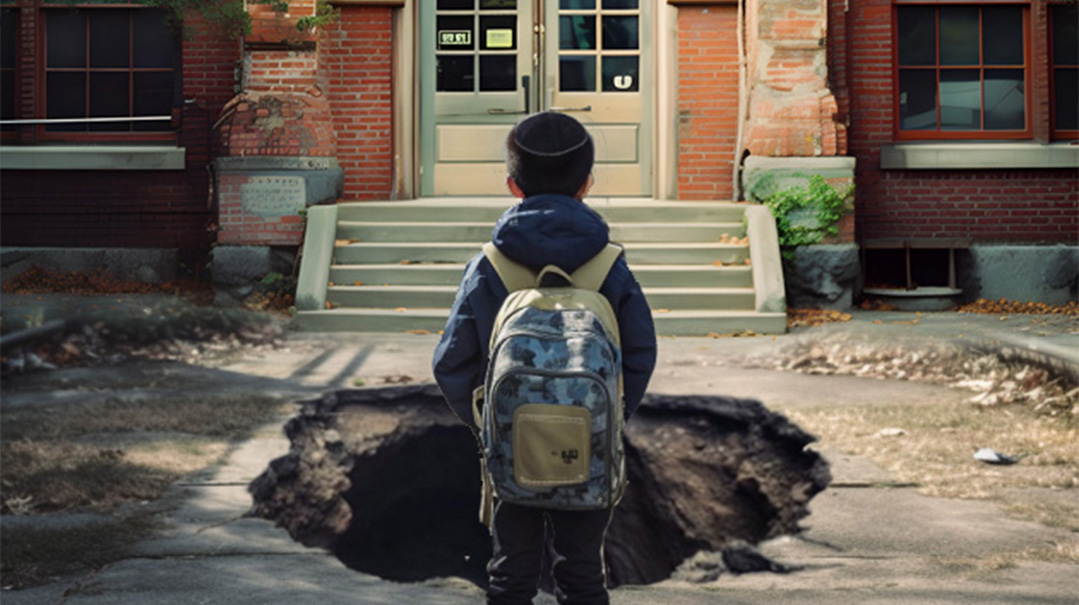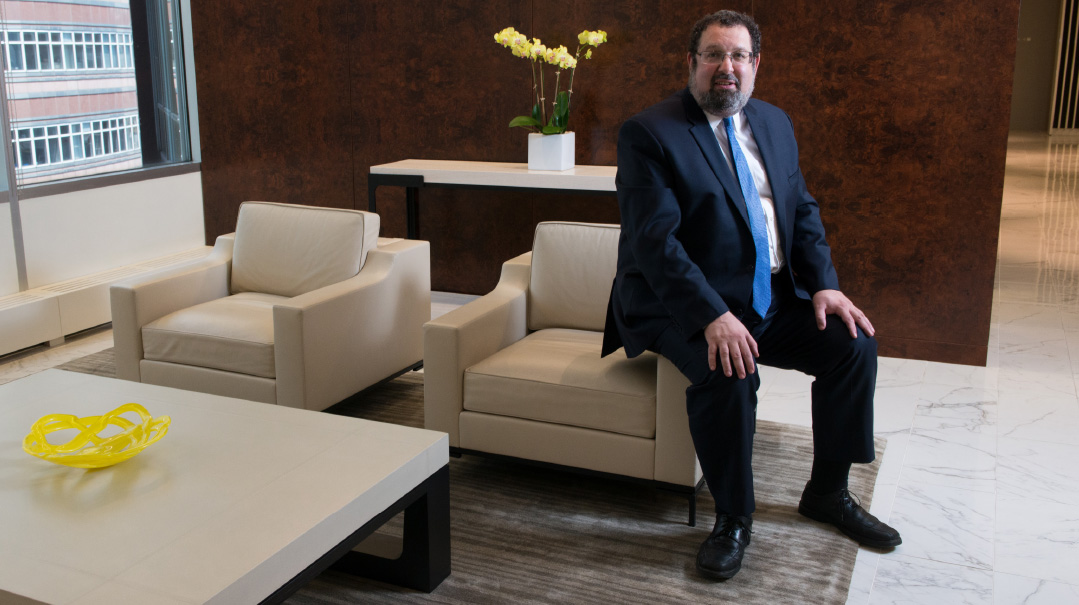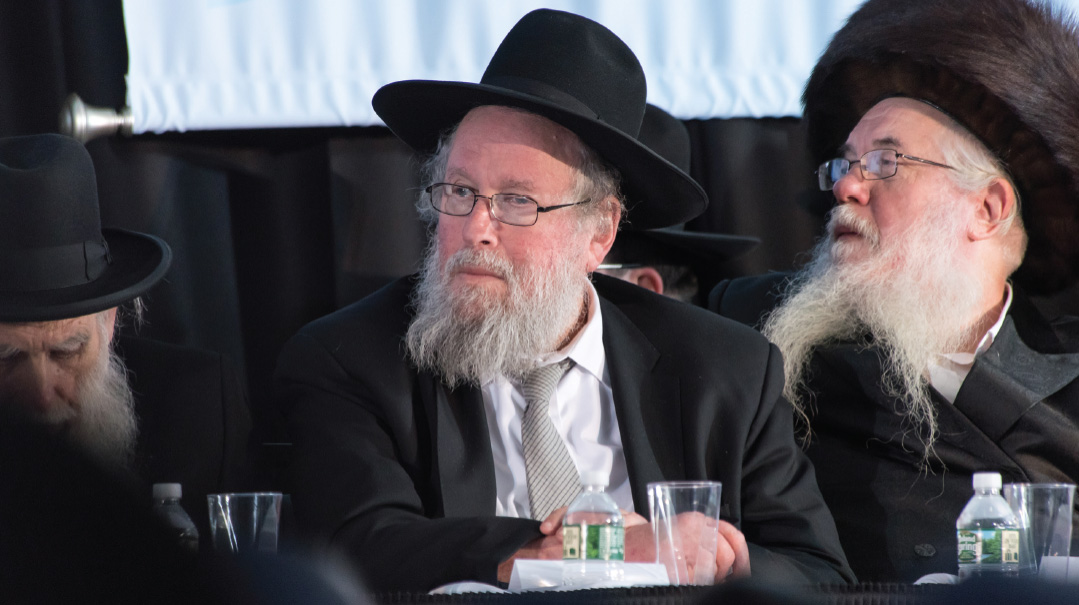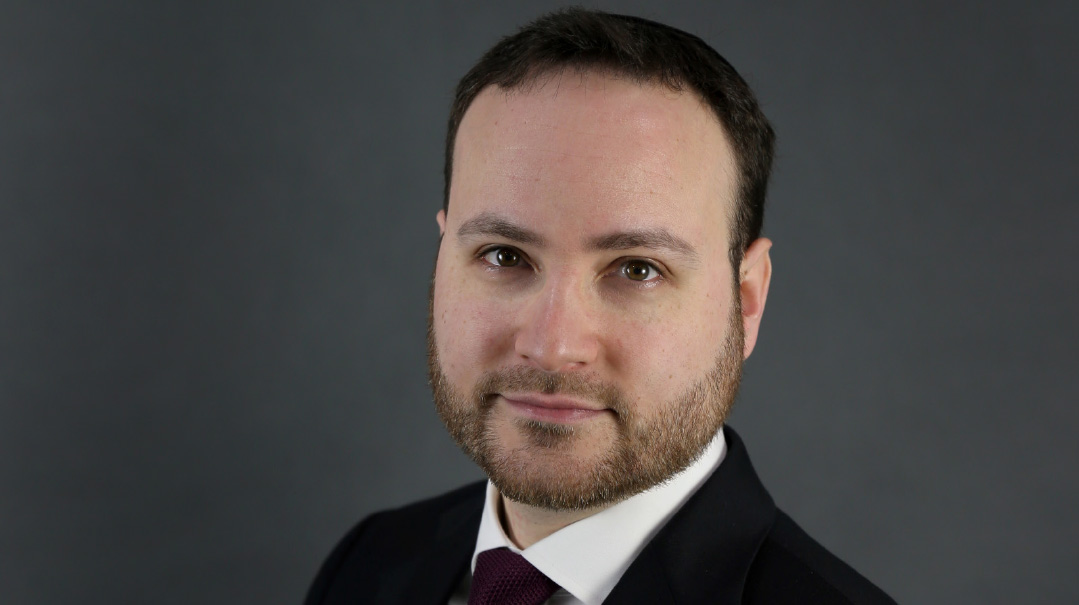Court of Last Resort
| April 18, 2023Victory for New York yeshivos: How rabbanim and advocates fought the progressive establishment to preserve pure chinuch

The attacks on New York’s yeshivah system that began eight years ago are the most severe threat to Torah life in the state in recent memory.
At the center of the push to reform yeshivos is the “substantial equivalency” provision of New York’s education law regulating instruction at nonpublic schools, which dates back to the turn of the 20th century.
A century and a quarter after the provision was first enacted, activists — many with personal vendettas against their former yeshivos and chassidic mosdos — used the law as a means of having the government dictate sweeping changes in yeshivah curricula.
When the saga first began, it was hard to imagine that the movement would gain such traction. After all, America’s robust protection of religious rights, and the thrust of liberalism itself that stressed the right of minorities to live life in their own way, militated against the success of any push to interfere with yeshivah education.
Add to that the fact that the challenge emerged in New York of all places — a city with a strong Orthodox presence and commensurate influence in government.
Yet despite the massive advocacy efforts undertaken by the community, time and again, New York’s leading politicians refused to take a stand for the yeshivos. That failure was evidence of the increasingly progressive tilt of the city’s rule-makers, and the growing clash between that progressivism and what had until then been accepted as settled religious rights.
That brewing crisis set the stage for a dramatic change in the community’s traditional lobbying stance. Historically, the Orthodox community has sought to wield influence discreetly, and avoid open confrontation with political leaders and city authorities.
But when the new regulations finally passed the state’s Board of Regents this past September, three roshei yeshivah intimately involved in the case — Rav Elya Brudny, Rav Yisroel Reisman, and Rav Yaakov Bender — instructed Avi Schick, Esq., a partner at Troutman Pepper and longtime community advocate, to abandon the traditional advocacy avenues and sue the State Education Department.
The pre-Pesach partial victory in the lawsuit against the New York Board of Regents vindicated the decision to use the judicial process to protect the integrity of yeshivah education. The judge’s ruling that responsibility for a child’s education rests with parents and that the state did not have the authority to penalize parochial schools that don’t meet the substantial equivalency standard was only a partial victory. It left unclear, for example, what would happen if parents were to ignore the state’s warning.
But the decision was hailed by yeshivah advocates as a rebuke to the state’s attempt to radically change yeshivah education.
While the ruling is not the end of the struggle, it provides a reference point to assess the ongoing battle for New York’s yeshivos. Here, we examine the long arc leading up to the decision, and discuss its aftermath.

Avi Schick “I’ve been in many positions on government before and this was not a normal way to act”
1894
Against the backdrop of urbanization in the United States, the New York legislature passed the Education Law of 1894, sometimes called the “Compulsory Education Law.” The legislation established, for the first time, a framework for public education.
As the economy transitioned from being primarily agricultural to industrial, the need grew for a more skilled workforce. Until that point, education had largely been the province of religious institutions, private schools, and parents. In fact, the precursor to today’s federal Department of Education (which wasn’t even a cabinet level position until the Carter administration created it in 1979) was enacted only in 1867, nearly 100 years after the country’s founding.
The push for greater access to education, particularly for less affluent children, led to New York state passing the Education Law, which created a framework through which the government would tend to educational needs. Among the law’s provisions were guidelines for a core curriculum, the organization of school districts, and a system of state aid to lower-income districts.
Another provision that was added at the last minute would prove fateful for yeshivos more than a century later: “Instruction given to a minor elsewhere than at a public school shall be at least substantially equivalent to the instruction given to minors of like age and attainments at the public schools of the city or district where the minor resides.”
This language was the result of an ongoing skirmish between Protestants and Catholics. Egged on by a prominent Protestant leader eager to paint Catholic education as hostile to American interests, the state legislature added the “substantially equivalency” provision to the Education Law. As Ira Stroll, the managing editor of Harvard-based policy journal Education Next, pointed out, the same unfounded fears of religious institutions being un-American behind the passage of the substantial equivalency provision in 1894 led to the issue being raised again in 2020.
2015
For 110 years, nonpublic schools in New York functioned squarely within the guidelines of the Compulsory Education Law. Beginning in the late 20th century, yeshivos serving the burgeoning frum population educated tens of thousands of students, who went on to build successful, productive, and happy families and communities.
In 2015, with the backing of a prominent progressive law firm and secular Jewish activists, YAFFED, a group of former yeshivah students, teachers, and parents — all of whom had abandoned religious observance — filed a complaint against the New York State Education Department alleging that they had been denied an education and that the New York City Department of Education been lax in enforcing the “substantial equivalency” provision of the state law.
With the rise of a strain of progressivism that sees religious education as divisive, the allegation fell on fertile soil. Particularly among YAFFED’s non-Orthodox backers, there was a sense of condescension in the effort to bring secular enlightenment to religious education.
The City DOE duly carried out an investigation into the yeshivos and sent its findings to its parent authority, the state, for instructions on how to proceed.
April 2016. After multiple conversations with city officials, the state’s first official response to the complaint was to create a brand-new office, the State Office of Religious and Independent Schools (SORIS) that would operate within the State Education Department. SORIS was to be responsible for providing guidance and assistance to the “nonpublic school community” on meeting state standards. The office began a “consultative process to update the guidance as it applied to all public and nonpublic schools statewide,” which would take two years.

Rav Elya Brudny “We walked out feeling that there was a bureaucracy and an education department here that was out to get us”
June 2018
In advance of the state propagating new regulations, Rav Elya Brudny, Rav Yisroel Reisman, and Rav Yaakov Bender met with MaryEllen Elia, then the state education commissioner. During the long meeting, the roshei yeshivah described the Torah approach to education to Ms. Elia, who was unfamiliar with the frum community and its chinuch system.
“We had to explain to her what a yeshivah is, what we’re all about,” Rav Brudny told Mishpacha.
The roshei yeshivah would soon learn that the effort had been wasted.
“They ignored our entire meeting,” recalled Rav Brudny. “It was as if we were irrelevant.”
It was to be the start of a long saga in which the state issued guidelines while deliberately ignoring the constituency most affected by them.
November 2018. After completing its two-year consultative process, the New York State Education Department released draconian guidelines, taking great latitude in interpreting the “substantial equivalency” provision in the Education Law. Among the provocative new measures in the 2018 guidelines were mandatory annual evaluations of yeshivos and a requirement to provide over seven hours a day of secular instruction — a requirement that would make a schedule of intensive Torah study a mathematical impossibility within a normal school day.
December 2018. In what the Times-Union termed a “major rebuke to the state,” the leaders of New York’s 500-plus Catholic schools announced that they intended to boycott the proposed new regulations, taking particular offense at the provision for local public school officials to inspect parochial schools and determine whether they offer a “substantially equivalent” education. The same month, a majority of New York City Council members signed a letter addressed to Commissioner Elia strongly opposing the regulations.
January–February 2019
The State Education Department ignored numerous advances made by the yeshivah community offering to meet and engage in dialogue over the regulations.
April 17, 2019
The New York Supreme Court sided with the yeshivos on procedural grounds, striking down the regulations due to illegal implementation. Agudath Israel’s executive vice president Rabbi Chaim Dovid Zwiebel hailed the court’s ruling:
“Strict enforcement of the new regulations would have wreaked havoc in many if not most yeshivos in New York. There is nothing more important to the yeshivah community than the independence of our educational institutions. Today’s ruling preserves that independence, and will allow parents to continue sending their children to yeshivos secure in the knowledge that fundamental chinuch-related decisions will be in the hands of yeshivah leaders rather than government bureaucrats.”
March 6, 2019
Led by attorney Avi Schick, the Agudah, PEARLS, and other yeshivah groups sued the state over the proposed guidelines, charging that the way they were promulgated amounted to legislation. Only the New York state legislature has the constitutional authority to create laws. The State Education Department is an agency within the executive branch charged with enforcing laws, but has no legal authority to enact laws.
Instead, where a state law gives the department responsibility over a certain area (for example, ensuring that nonpublic schools are “substantially equivalent”), it can interpret and clarify enforcement through a process known as “rulemaking.”
To preserve the department’s accountability to the public, the state constitution requires it (and other agencies) to engage with stakeholders affected by its rules. Before passing any regulations, the department must notify the affected stakeholders of the proposal and take public comments. Since the State Education Department failed to follow those state guidelines, the suit argued, the rules should have been nullified.
July 3, 2019
The State Education Department released new guidelines — nearly identical to the original set of guidelines — but this time it issued the guidelines in a manner consistent with the law, with a public comment period, per the Supreme Court’s ruling.
The department announced it would accept comments through September 3, 2019, at which point the regulations would be voted on by the Board of Regents. Although the new guidelines were nearly identical to the original ones, the department took almost two months to release them.
The timing of the release meant that the two-month comment period fell between July 3 and September 3, when schools were out of session and teachers and staff were on vacation. It was the least advantageous time of year for mobilizing and coordinating the parent body to submit comments on proposed regulations that would, as Rabbi Zweibel wrote to school administrators, “appear to require radical changes in the educational mission of many if not most of our yeshivos.”
July–September 2019
Over 144,000 comments flooded the New York State Education Department opposing the regulations. In addition, the three roshei yeshivah, the Agudah’s Rabbi Zweibel, and a representative from Satmar met with Betty Rosa, then chancellor of the Board of Regents, which controls the State Education Department. Like previous such meetings, it amounted to little.
February 11, 2020
After inevitable delays stemming from the Covid outbreak, the Board of Regents met nearly one year later to discuss the regulations. By law, every comment submitted had to be read, and the State Education Department was forced to hire additional personnel to sort through the voluminous amount of letters that came in.
At the meeting, which was attended by Rabbi Zweibel and Rabbi Yeruchem Silber of the Agudah, the Regents decided not to advance the regulations as proposed. In a statement issued afterwards, the Agudah expressed gratification that the regulations were not approved, yet still cautioned, “What is less clear, and what will remain front and center on their and our agenda is: If not these regulations, what will replace them? Will the next iteration allow us to practice our religion and educate our children as we see fit? In other words, this is far from over.”
July 2020
The New York State Board of Regents met again discuss the issue of “substantial equivalency.” The state acknowledged that due to the COVID-19 pandemic, the process had been delayed, yet resolved to “once again begin the reengagement with all stakeholders with the goal of publishing new proposed regulations by early October 2020, and to finalize the process by January 2021.” It would be another year and a half before the department proposed new regulations.
March 2022
The Department released its long-awaited second draft of regulations. The new regulations offered several pathways for yeshivos to be deemed substantially equivalent and in compliance with the law, while abandoning the previous insistence on a set amount of hours and specific courses to be taught.
Yeshivah groups still remained opposed, with PEARLS explaining in a statement, “While we recognize that the proposed regulations are less intrusive than the two versions that preceded it, we remain disappointed. Government does not possess either the expertise or the ability to evaluate our limudei kodesh classes or those who teach them, yet these regulations require local school districts to do just that. SED [the State Education Department] heralds the possibility of third-party accreditation, but our repeated requests that SED approve an accrediting body that is familiar and experienced with yeshivah education were ignored.”
For its part, YAFFED was happy with the new regulations, calling them a “positive step” but still asking the SED to ensure that loopholes “close before adopting them.”
As with the first round of regulations, the new regulations were posted on the NYSED’s website and invited the public to comment.

Avrohom Weinstock “What we are seeing here, en masse, is parents asserting their rights”
April 2022
Shattering the previous record for public comments on a proposed rule, over 350,000 comments poured into the state’s portal, the overwhelming majority of them adamantly opposing the new regulations. Groups of yeshivah-educated lawyers, doctors, educators, and mental health professionals — even a group of yeshivah-educated Harvard Law School graduates — all submitted letters explaining why the regulations undermined the independence of yeshivos.
“It is interesting to see the opposing comments emanating from every sector of Orthodox Jewry,” said Avrohom Weinstock, Agudah’s chief of staff, at the time. “While Orthodox Jews are far from monolithic in dress, worldview, and practice, they are staunchly united in their assertion that it is parents who should be deciding how their children are educated and raised, not government. What we are seeing here, en masse, is parents asserting those rights.”
In addition, Rav Elya Brudny, Rav Yisroel Reisman, and Rav Yaakov Bender left their respective summer camps to meet again in Albany, this time with Dr. Betty A. Rosa, now the state education commissioner. After the making the trek to Albany, the three roshei yeshivah sat down to meet with Dr. Rosa — who it turned out, couldn’t make it due to a “scheduling conflict.” Her deputy was sent in her stead.
Avi Schick, who accompanied the roshei yeshivah to the meeting, and who had served in numerous senior positions in state government, was having none of it. He let the staff know that her sudden absence would not be taken lightly — and five minutes later, the commissioner showed up. The roshei yeshivah presented their case, but a sense of foreboding prevailed.
“We walked out feeling that there was a bureaucracy and an education department here that was out to get us,” recalled Rav Brudny.
After the meeting, the commissioner asked that the roshei yeshivah put their suggestions in writing. A letter was painstakingly written, outlining exactly which points in the regulations they hoped to see rectified.
May 2022
A letter came back from the commissioner, stating curtly: “As with all comments received during the 60-day public comment period, NYSED will consider and include yours in the Department’s assessment of received public comments… Given the nature of the public comment process, the Department would not be able to release an updated version of the proposed substantial equivalence regulations, if applicable, until the end of the public comment period.”
“I’ve been in many positions on government before” said Schick, who had previously served as deputy attorney general for New York state, “and this was not a normal way to act.”
September 12, 2022
In a Sunday front-page article, the New York Times published a hit piece against yeshivos. Headlined “In Hasidic Enclaves, Failing Private Schools Flush with Public Money” the piece was laced with innuendo and quoted almost exclusively from individuals who had left an observant lifestyle.
The portrayal of yeshivos as siphoning off the largesse of taxpayer dollars they received to operate while refusing to submit to the rules that govern them was misleading on many levels, says Avrohom Weinstock. First, while aggregate numbers for hundreds of thousands of pupils always sound intimidating, an apples-to-apples, per-pupil figure reveals the pittance in funding directed to non-public school children versus public school pupils in New York. To the contrary, every child attending a yeshivah saves New York taxpayers tens of thousands of dollars annually.
Second, while all New York residents pay taxes — unlike the growing number of states providing various flavors of school choice incentives, tax credits, or vouchers to nonpublic school parents who choose not to avail themselves of the free public school down the block — whatever funding is directed at nonpublic school children is generally not “going” to the children, their parents, or their school. Rather, the funds are primarily reimbursement for services schools perform at the behest of the state; for certain services a child may be entitled to; or for items that follow the child, like school food. While these items are certainly helpful and appreciated, it is deceptive to represent them as a check “for the school” and its operating expenses.
But most fundamentally, since this battle began, the nature of the reforms was not about the tradeoff of independence for funding, but an attempt to assert authority and control by articulating a very specific definition of education. In other words, if a school had taken a principled stance and proclaimed it was relinquishing all governmental services and reimbursements on behalf of its children, it would have received no refuge from the mandates being imposed.
Traditionally, the press operates independently from government. In this case, the Times and the Education Department seemed to have worked in tandem; the vote on the proposed regulations was scheduled for the next day. At the very least, it was evidence of the hardening of liberal sentiment against religious education.
September 13, 2022
The Board of Regents, toeing the line of the Times, voted unanimously in favor of the regulations.
“As religious Jews, we seek above all else to raise our families in the traditions of our faith,” read a statement from the Agudah and Torah Umesorah organizations. “Our people have sacrificed so much over the millennia to preserve the institution of the yeshivah — the foundation of our faith. We cannot relinquish control of the yeshivos that are the essence of our people. We cannot surrender control of our curricula.
“Our religious requirements have not been adequately addressed,” the statement continued. “Our rabbinic leadership has not been properly heard. The 300,000 pleas of our communities have not been given the attention they deserve. Our people simply cannot abandon our religious values. With the help of G-d, we will not permit it to happen.”
In a conversation with Mishpacha, Rav Brudny said that community leaders made the decision to sue. “We had no other way, there was no other recourse — it is unpleasant to go to court, but the talks about legislative fixes were not convincing.”
January 19, 2023
A coalition of yeshivah groups led by attorney Avi Schick filed a lawsuit against the State Education Department.
In his sworn affidavit, Rav Yisroel Reisman concluded, “There is simply no justification for the mandates of the regulations. They upend a status quo that has existed for more than 125 years and that has worked well. I have been a teacher my entire adult life. In addition to teaching a daily class at Yeshivah Torah Vodaath and classes for its alumni, I teach more than a half-dozen classes each week to the members at the synagogue where I serve as rabbi, and offer a weekly lecture that is broadcast live to more than 40 cities across the United States. I can say with great confidence that a yeshivah education prepares students for successful lives. Our system of education has been delicately crafted to balance life skills with a religious life. New York State should not force this to be changed.”
March 23, 2022
While skirting the thorny constitutional questions of the lawsuit, a judge ruled in favor of the yeshivos, finding that the state does not have the authority to penalize parochial schools that do not meet the substantial equivalency standard.
More importantly, the court struck from the regulations the provision stating that a school found to be non-equivalent does not meet the requirements of a school under the Compulsory Education Law. Thus, a yeshivah is a school regardless of whether the state believes that its secular studies are adequate. This ruling preserved the right of parents to choose the yeshivah of their choice as the core educational component for their child. The judge, in her ruling, noted that if an aspect of secular studies is lacking in the school, the parents have the right to supplement at home, in an after-school program.
Rav Brudny was very pleased with the ruling, calling it a “major preliminary breakthrough.”
“In essence, the court acknowledged the state’s interest in compulsory education, but recognized the superior rights of parents to direct that education,” said Schick, “and while this is by no means over, it is highly unlikely that states, local prosecutors, or social service agencies will go after parents individually.”
(Originally featured in Mishpacha, Issue 957)
Oops! We could not locate your form.







